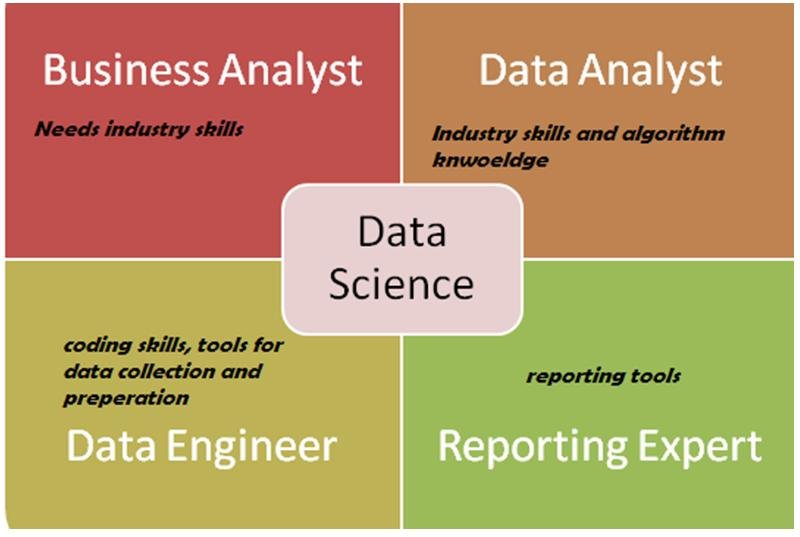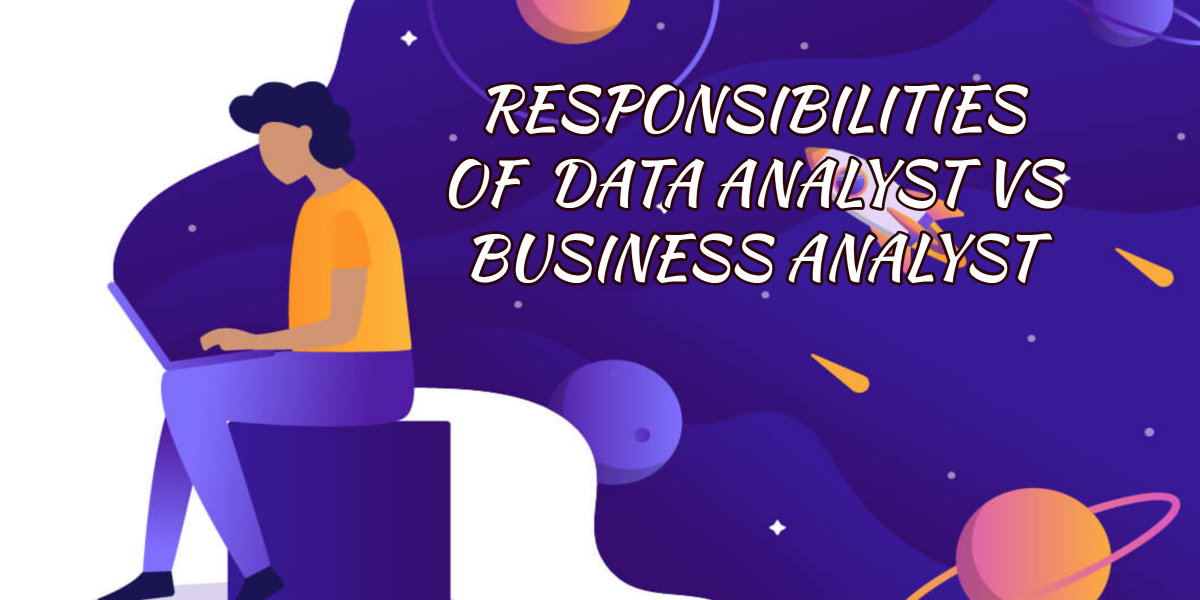This article was published as a part of the Data Science Blogathon.

Are you often intimidated by the power of data analysis and how it can impact major business decisions? Are you someone who wants to start a career in the analytics domain but is confused between Business Analyst vs Data Analyst? Well, your search ends here because today we are here to discuss important pointers that will help you choose the right role. Today we will be briefly discussing about:
-
Responsibilities
-
Qualifications &Skill sets
-
Salary/ CTC
These pointers will help you decide on your career path and guide you to be the best professional in your field. Stay tuned!
Business Analyst Vs Data Analyst: Few Important Questions to Consider

Which is better data analyst or business analyst?
Both data analysts and business analysts have equally important roles in their company. However, which role is better for you solely depends upon your requirements and needs. Both the business and data analyst use data to back their reports and findings of the project they are handling. However, both professionals use different approaches to tackle their data. On one hand business analysts are responsible for making important business decisions. While data analysts work with the collection, organization, and interpretation of a company’s data to make it useful for their businesses.
Can a business analyst become a data analyst?
A business analyst can choose to learn data analysis tools like SQL, R, Python, etc to become proficient with data collection, interpretation, and management. It is important for both business analysts and data analysts to be comfortable with handling data such that they can make a career transition to a data analyst or scientist role. They need to be comfortable with programming and coding to make a switch to these roles.
Are analyst jobs hard?
In the beginning, all sorts of analytical tasks seem hard, however with regular practice and hands-on practice on analytical tools like PowerBI, SQL, Tableau, extracting, cleansing data, and preparing proper reports becomes easier.
Now let’s understand the role of business analysts and data analysts in terms of factors.
Responsibilities of Business Analyst vs Data Analyst

Business Analyst:
Business analysts are experienced professionals who assist in improving the existing business processes by understanding the key issues and improving the efficacy through their analysis and critical thinking capabilities.
When an organization is required to resolve a problem that is pertaining to current or future aspects of the company, the business analysts are responsible to take matters into hand and provide a necessary solution to this. Their typical role in the organization is :
-
Working with the clients to understand the problem and defining the problem statement.
-
Analyzing the current & future business needs by extracting the current data
-
Understanding requirements of the company and the client projects
-
Communicating the client’s requirements to the development team
-
Developing and Managing the Client Projects
-
Working closely with the Client and the Development team to help in escalating issues wherever necessary and ultimately developing useful solutions for the client,
-
Making important business decisions for the company based on their analysis.
-
Testing the developed use case before handing the solutions to the client
-
Reviewing current trends and implementing various tactics to improve and change the current trends that may seem outdated for the system.
Data Analyst
Data analysts normally don’t work with clients directly, their primary role is to work with the data, explore the features of data, create actionable insights and reports for better understanding. They use techniques from mathematics, statistics, and computer programming to draw further conclusions from data to describe and improve their existing business performance. Their typical role in the company is to:
-
Extract, Collect and Interpret data
-
Deeply analyze the results
-
Creating actionable insights and reports to present it to the company
-
Identifying trends that are present in the data sets to come to the conclusion
-
Understanding business needs and creating use cases and reports based on the requirements of the company
-
They work closely with the management team to prioritize the current business needs
-
Ultimately they are also required to define the ways to improve the current business processed based on their findings.
Qualifications & Requirements of Business Analyst vs Data Analyst
Requirements for a Business Analyst Role
Normally the business analysts have relevant degrees in the field of business, finance, or economics. An undergraduate degree holder can enter the entry-level position for BA. However, for higher roles, an MBA in Business Administration is preferred with some relevant experience.
The requirements of business analysts include:
-
Expert in researching data
-
Should possess mathematical mindset and
-
Good Analytical Mindset & A Critical Thinker
-
Strong Hold in MS Excel, Access, SQL
-
Should know how to operate Power Bi, Tableau, Jira Software
-
Experience in Handling & Managing Project
-
Good communicator and should know how to communicate with the client and the programming team to meet the business requirements
Requirements for a Data Analyst Role
To become a data analyst, you must have a degree in the following subjects like Mathematics, Statistics, Engineering or Economics degree.You can enter the career path even with an undergraduate degree.
Other requirements to become a successful Data Analyst include:
-
Should be able to handle data models
-
Can analyse and extract information from huge datasets
-
Should have programming knowledge in languages like R, Python, SQL etc
-
Should be able to generate actionable reports
-
Problem-solving ability
-
Analytical mindset
-
Can understand the problem and extract important features from the data set by performing activities like EDA( Exploratory Data Analysis)
-
Proper knowledge of data mining techniques as well
Business Analyst vs. Data Analyst: Comparison of Salary
Well, it’s not that you should be driven to a career based on the salary. However, its important for you to know which profile you should consider and what is growth that you can expect over the years. So don’t worry as we will discuss what you can expect.
In India, the starting salary of a Data Analyst is usually between 3 lakhs to 5 lakhs. It increases to 7 lakhs when you gain experience of 2-3 years in the industry. It can go up to 10-15 LPA with more experience. If you happen to get a job elsewhere in the world like the United States the salary might be even more.
A business analyst gets anywhere between 4 to 6 lakhs in entry-level positions. If they hold an MBA degree from a reputed institute it can go up to 12 LPA. With good experience, they can earn up to 20 LPA as well in India.
Concluding Remarks
While there are many factors to consider while considering a role in the field of analytics, we recommend you to check if you want to get into the technical aspect of the analytical field or the business aspect. Generally, people with programming skill sets tend to opt for data analytics and people with a business mindset tend to go into the business analytics domain. In some companies, you may be asked to display both the skill sets as an analyst. However, you can choose to upgrade yourself and keep learning new technologies and skillsets to complement your career in the best possible way. If you are confused you can always take career counseling and guidance from institutes like Analytics Vidhya to land your dream role.




